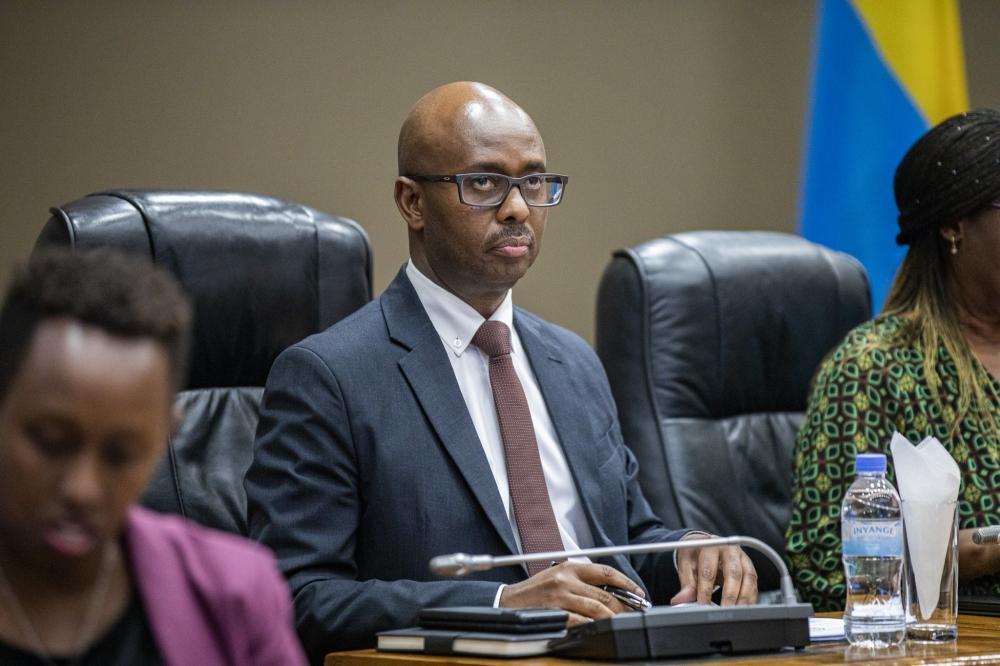Africa-Press – Rwanda. The Minister of Finance and Economic Planning, Yusuf Murangwa, yesterday, read the national budget in which the government plans to spend Rwf7 trillion in the next fiscal year 2025-2026, which starts on July 1.
This budget represents a 21 percent increase from the 2024-2025 budget and highlights where the government places more priorities.
First, the increased budget lays out a highly ambitious plan to transform the economy and promote transformational governance, among other key development priorities.
At the heart of the latest financial plan are two flagship projects: the New Kigali International Airport in Bugesera and the expansion of RwandAir.
The new airport project alone is expected to cost the government around $600 million (Rwf850 billion) in the next fiscal year — accounting for nearly 70% of the entire increase in government spending.
These infrastructure investments signal Rwanda’s intent to position itself as a regional hub for aviation, tourism, and trade, and they are underpinned by strategic partnerships with the Qatar Investment Authority.
From a developmental perspective, these investments make sense.
A modern, world-class airport coupled with a stronger national carrier could significantly improve Rwanda’s global connectivity, attract foreign direct investment, and unlock new economic sectors.
The potential for job creation, skills development, and increased export earnings cannot be overstated. These are the kinds of catalytic projects that can shape Rwanda’s economy for decades.
However, the financing structure of the budget raises important questions about sustainability and equity.
More than Rwf4.1 trillion is expected from domestic revenues, with an additional Rwf2.1 trillion sourced from external loans — a 43% increase compared to the previous year.
Notably, the rise in borrowing is largely driven by the airport and airline investments. With Rwanda already committed to servicing growing debt, the burden of raising domestic revenue becomes even more pressing.
That’s where the government’s new tax reforms, set to take effect on July 1, come into focus.
While broadening the tax base and improving compliance are necessary steps, the pace and scale of tax increases must be carefully weighed against their potential impact on citizens and businesses.
In a post-pandemic economy still grappling with inflationary pressures and high costs of living, there is a genuine risk that aggressive taxation could stifle small enterprises, squeeze middle-income earners, and deepen inequality.
The country must avoid the pitfall of sacrificing short-term economic well-being in the name of long-term infrastructural glory.
Rwanda’s track record in prudent fiscal management and effective use of public funds is commendable, but now more than ever, transparency and balance are crucial.
Taxpayers need to feel that the burden they bear is fair, and that the benefits of mega projects are shared across the economy — not just concentrated in select sectors.
As Parliament scrutinizes the budget, it will be vital to ensure that domestic tax measures are equitable, external borrowing is sustainable, and that the benefits of flagship projects translate into broad-based development.
In the end, a truly transformational budget is one that builds for the future without compromising the resilience of the present.
Source: The New Times
For More News And Analysis About Rwanda Follow Africa-Press






